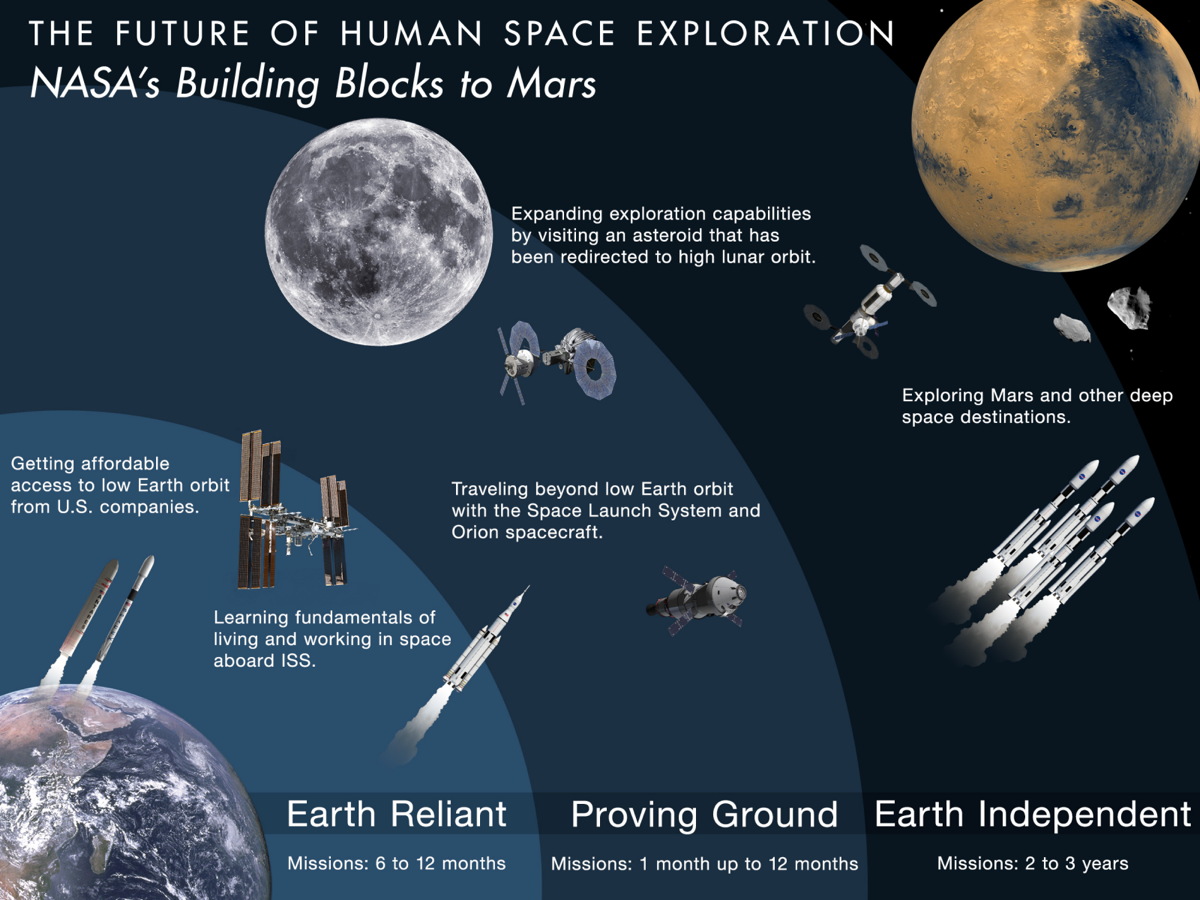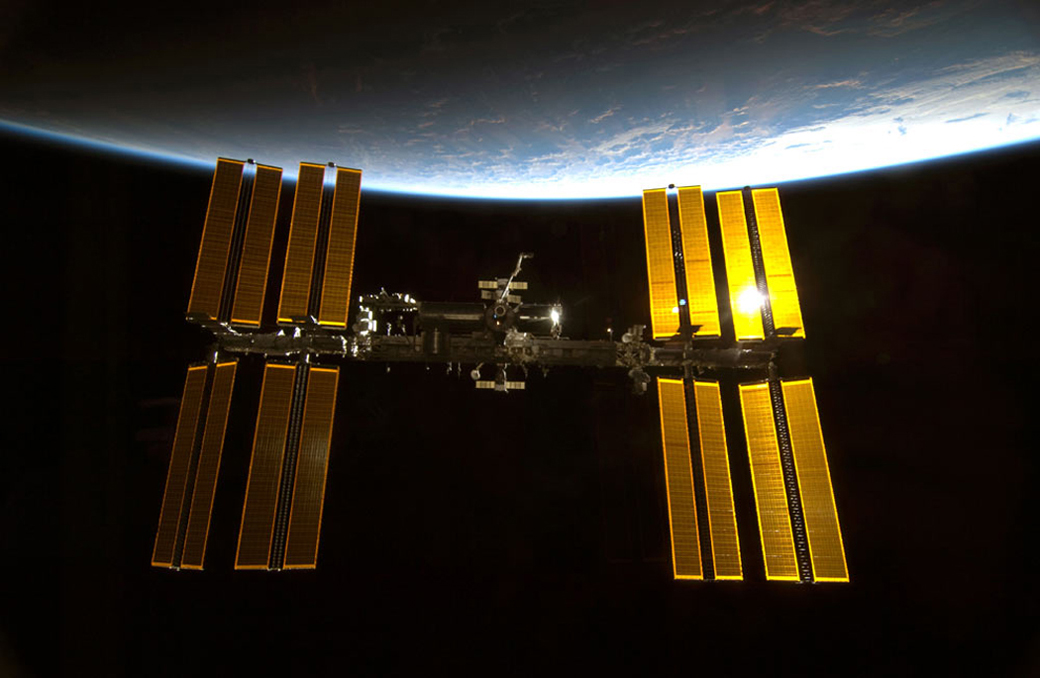
Expert Voices: Reactions to NASA's 2015 Budget Request for Space Exploration

NASA unveiled its 2015 budget request on Tuesday (March 4), a $17.5 billion spending plan that would maintain the space agency's major ongoing missions, while supporting ambitious new science missions and making cuts to others.
The budget rollout, which was part of the national 2015 budget request released by the White House, is prompting responses from space exploration experts and spaceflight industry leaders. [See Space.com's complete coverage of NASA's proposed 2015 budget]
Scroll down to read the reactions to NASA's proposed spending plan for 2015:
Charles Bolden, NASA Administrator (Partial statement)
This budget keeps us on the same, steady path we have been following — a stepping stone approach to send humans to Mars in the 2030s. It's a path that has seen many recent successes, from the launch of the Global Precipitation Measurement mission last week — the first of an unprecedented five Earth Science launches this year — to returning space station resupply missions to U.S. soil with private American companies …to the power-up of Orion and the countdown toward its first flight test later this year …to the final mirrors for the James Webb Space Telescope being delivered.
This budget ensures that the United States will remain the world's leader in space exploration and scientific discovery for years to come. The budget supports the administration’s commitment that NASA be a catalyst for the growth of a vibrant American commercial space industry, and keeps us on target to launch American astronauts from right here in the USA by 2017, ending our reliance on others to get into space and freeing us up to carry out even more ambitious missions beyond low-Earth orbit.
Read NASA chief Charles Bolden's full statement on the 2015 budget request here.
Get the Space.com Newsletter
Breaking space news, the latest updates on rocket launches, skywatching events and more!

With the proposed budget, the Administration continues to communicate the importance of having a strong national space program that can further our presence in space and benefit life here on Earth.
We applaud the robust support for Commercial Crew and Space Technology which will strengthen our space industrial base, and secure the nation’s place as a leader of exploration and innovation. We look forward to working with Congress to achieve the highest levels of funding for these critical programs.
Related: NASA Space Tech, Science & Exploration Goals in 2015 in Pictures (Gallery)
Rep. Adam Schiff (D-Burbank, Calif.), member of the Appropriations Committee’s Commerce, Justice and Science Subcommittee
The budget proposal for planetary science is significantly better than in past years, but is still far below the levels approved by Congress and isn’t sufficient to meet the priorities laid out in the decadal survey – which put the highest priorities on Mars 2020, a Europa flagship mission, and the Discovery and New Frontiers missions. While I’m pleased to see the budget continues to provide funding for the Mars Exploration Program, in particular the Mars 2020 mission, and recognizes the importance of a future mission to Europa, a far greater investment will be necessary to ensure America’s preeminence in planetary science.
The Administration should recommit to keeping the Mars 2020 project on track and on time, and to a far-reaching Europa mission. Thanks to the brilliant scientists at JPL, we have the unique ability to design, fly and land sophisticated robots on our planetary neighbors – and if these projects are disrupted, we might lose this perishable and incredibly specialized talent pool. America’s leadership on planetary science is not something we should surrender, and is something that my colleagues on the House Appropriations Committee have supported repeatedly. I look forward to working with my colleagues, once again, to restore adequate funding to planetary science and only wish it wasn’t necessary to do so year after year.
Related Video:How NASA Will Spend Your Money
Elliot Pulham, Space Foundation CEO
The president's proposal of $17.46 billion in FY15 funding for NASA is very close to the FY14 appropriation of $17.64 billion. Additional NASA funding proposed within the Opportunity, Growth and Security Initiative would increase NASA's FY15 funding to $18.4 billion.
With NASA's budget at a historic low as a percentage of the federal budget, we strongly support the $18.4 billion proposal as a bare minimum.
The increase of funding for commercial crew programs from $696 million in FY14 to $848 million in FY15 could not come at a better time. Soyuz prices are set to increase yet again, and our dependence upon Russia for key space capabilities is certain to be scrutinized in view of world events.
All International Space Station budget lines would be fully funded, which is important to sustaining ISS operations to 2024.

Overall, the President’s budget request is a realistic, yet bold plan for action. I look forward to further examining the proposals in the President's budget that fall under the jurisdiction of the Committee on Science, Space, and Technology. The future of American innovation and leadership rest on the investments we make today. In that regard, I am happy to see the Administration take a more deliberative and transparent approach to our nation's STEM education efforts. Preparing our next generation for the jobs of tomorrow should be our top priority.
Budget increases for some agencies and programs will help maintain U.S. leadership in science and innovation. However, I am disappointed to see flat or even decreased funding in a number of key areas of the federal government's R&D budget. For example, the budget request for the National Aeronautics and Space Administration fails to even meet the 2014 enacted funding level and, if enacted, will hinder the agency’s performance in the coming years.
To provide for additional investments, the President included a proposal to Congress titled "Opportunity, Growth and Security Initiative." I support the goal of increasing our investments in R&D STEM education and I hope to work with the President and my colleagues to further clean energy technologies and grid modernization, as well as advanced manufacturing initiatives and research on the impacts of climate change.
Email Tariq Malik at tmalik@space.com or follow him @tariqjmalik and Google+. Follow us @Spacedotcom, Facebook and Google+.
Join our Space Forums to keep talking space on the latest missions, night sky and more! And if you have a news tip, correction or comment, let us know at: community@space.com.

Tariq is the Editor-in-Chief of Space.com and joined the team in 2001, first as an intern and staff writer, and later as an editor. He covers human spaceflight, exploration and space science, as well as skywatching and entertainment. He became Space.com's Managing Editor in 2009 and Editor-in-Chief in 2019. Before joining Space.com, Tariq was a staff reporter for The Los Angeles Times covering education and city beats in La Habra, Fullerton and Huntington Beach. In October 2022, Tariq received the Harry Kolcum Award for excellence in space reporting from the National Space Club Florida Committee. He is also an Eagle Scout (yes, he has the Space Exploration merit badge) and went to Space Camp four times as a kid and a fifth time as an adult. He has journalism degrees from the University of Southern California and New York University. You can find Tariq at Space.com and as the co-host to the This Week In Space podcast with space historian Rod Pyle on the TWiT network. To see his latest project, you can follow Tariq on Twitter @tariqjmalik.









